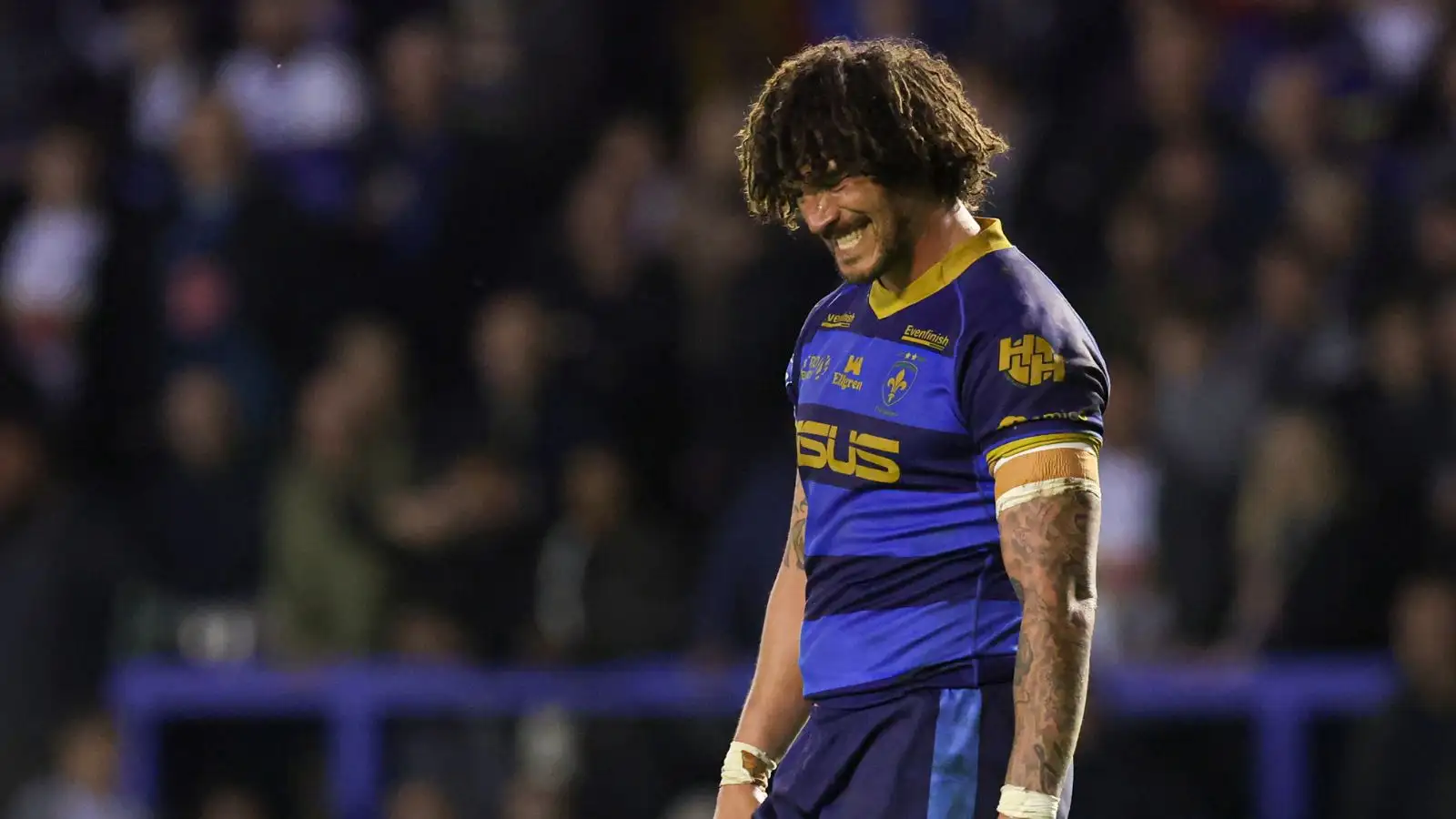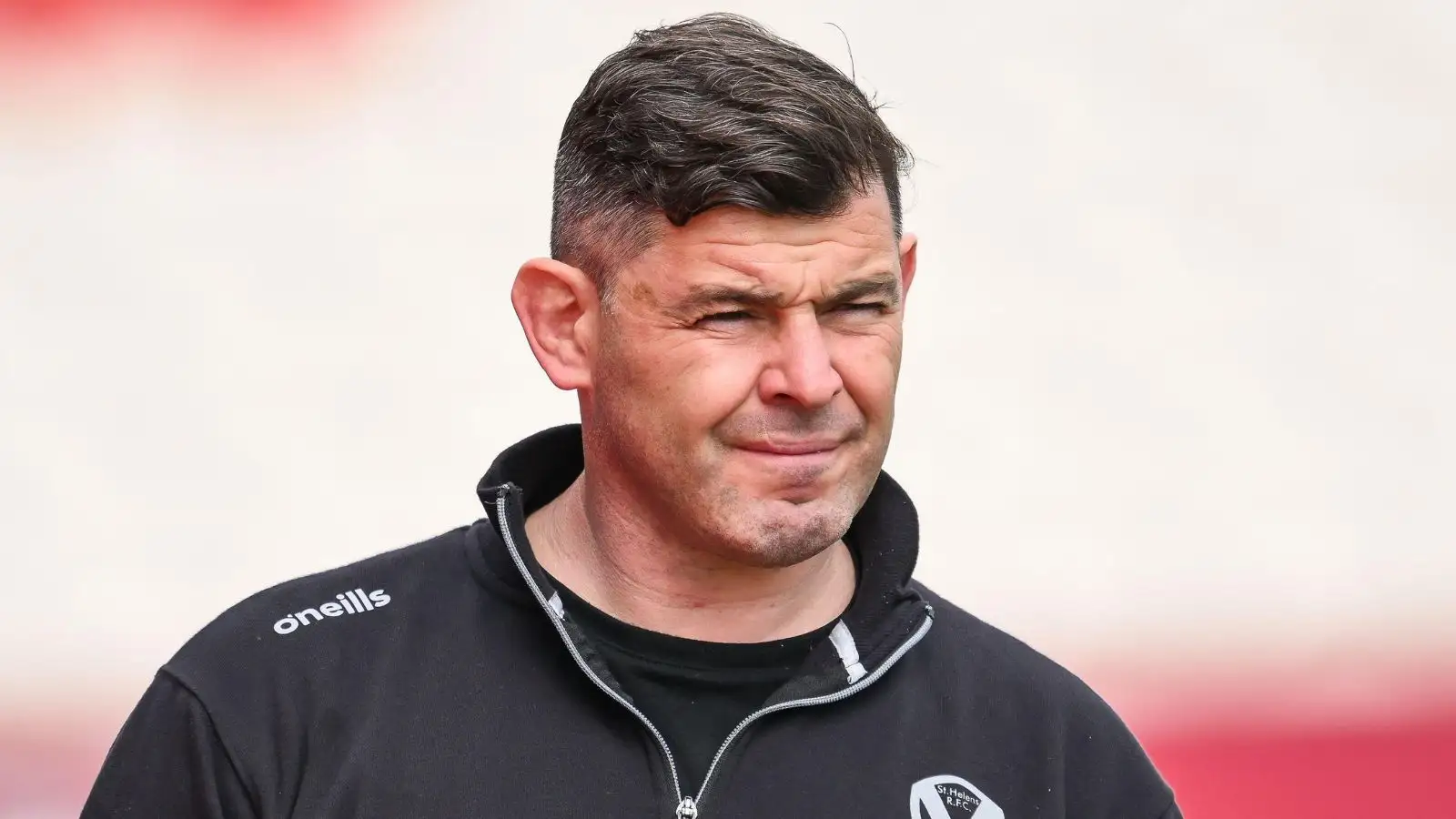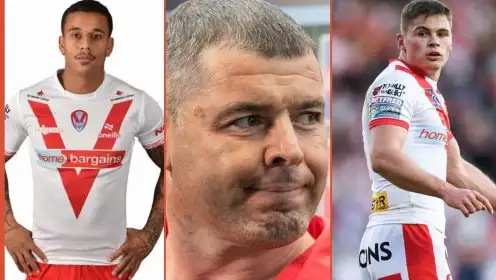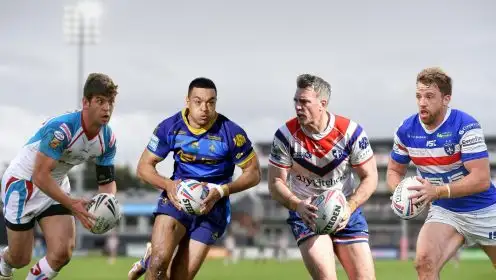Editor’s column: Level playing field, structure changes & international debate
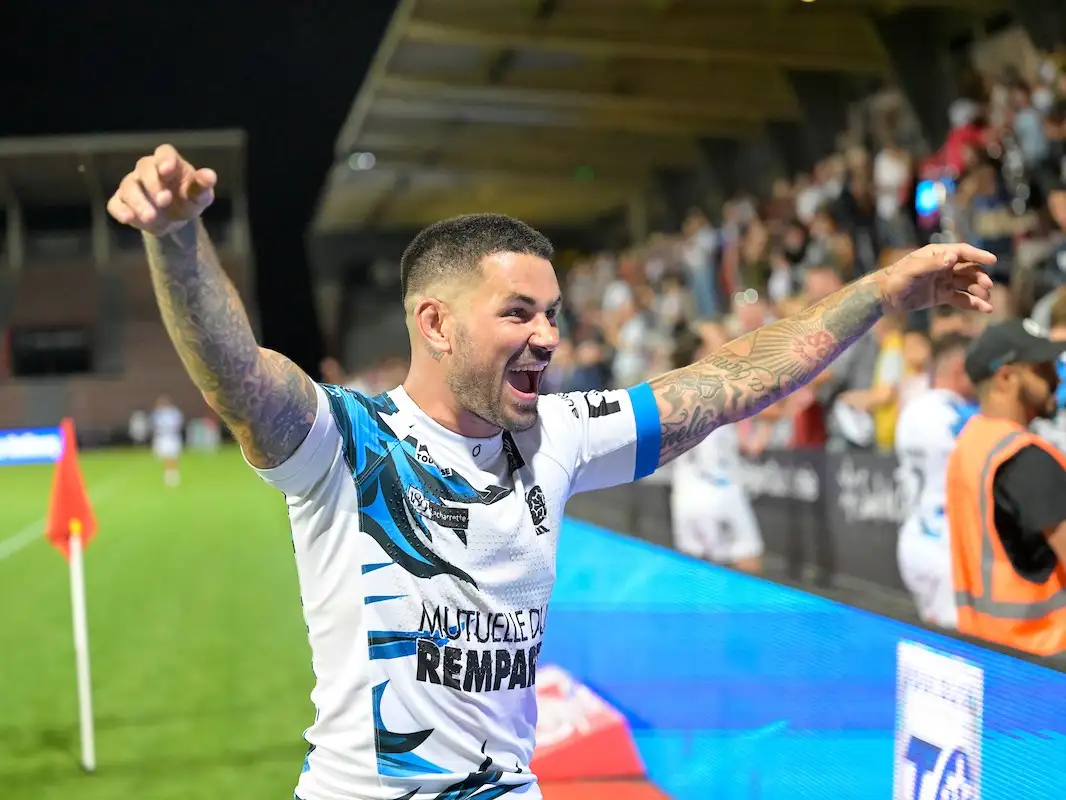
Photo: Fabrice Rodriguez/SWpix
A number of rugby league talking points for this week’s editor’s column, including bans, internationals, structure changes and Magic Weekend.
A level playing field
The most important game of Magic Weekend will be the relegation battle between Toulouse and Wakefield.
Anything but a Toulouse win, and I think we can wave goodbye to any chance of the French club retaining their Super League status.
While some will say more focus should be given to the St Helens and Wigan clash at the top of the table, ultimately the nature of rugby league means that’s just a pre-cursor to the play-offs and the Grand Final.
There’s no second chances for Toulouse, and they must follow up the win over Hull KR by beating Trinity.
Whatever IMG decide to do with Super League, the fact shouldn’t be lost that in recent years, the promoted sides have not been on a level playing field.
Leigh had to jump in at the eleventh hour last season and were hindered not only by late recruitment, but by a heavily reduced central funding pay out.
This season, Toulouse have been forced to cough up the travel expenses for the established Super League clubs they had earned the right to play.
No doubt this is a significant contributory factor to why Toulouse will end the season with just one home game in six.
After their five games in July, four of which are at home, the only team that will visit Toulouse for the rest of the season is Catalans.
It shouldn’t have to be like this.
Structure changes
The confirmation from Ralph Rimmer that there will be no structure changes for 2023 was welcome – though it really ought to be a given.
It’s diabolical that clubs are expected to prepare for and start a season without knowing exactly what they’re playing for.
Clubs have already started recruiting for 2023 based on rumours, as there will be a scramble to finish as high up the pyramid as possible; which of course should always be a priority anyway.
But the constant uncertainty does nothing for clubs’ forward planning – and this is why the recommendations and analysis by IMG cannot happen quick enough.
Bans
I’m loathed to criticise referees because without them there is no game.
And they aren’t being dealt a fair hand. The constant changes to laws and interpretations has tied the game up in knots.
Player goes low (what we teach kids) 🤩
Then attacking player falls over him and attacking players momentum pulls defender through and up in the tackle (because the human spine cannot fold like that) and defender is done for dangerous tackle 🤯🤯🤯
🤬 Na Not Having That 🤬 pic.twitter.com/wrCpDZsi6O
— Robbie Hunter-Paul (@RHunterPaul) July 1, 2022
Even as someone who covers rugby league for a living, there are tackles and incidents in games now and I have no idea which way they will go or what rough punishment there could be.
The litigation surrounding past players is a huge cloud over the game. Player welfare is paramount; but at the same time, the nature of rugby league means there will be accidental contact.
There seems to be added frustration at bans handed out by the Match Review Panel when reviewing incidents that were dealt with, or not, during the game.
Dylan Napa was the obvious example at the weekend – he is facing a lengthy ban having only been sin-binned on the day.
Michael McIlorum is banned for three games despite only a penalty being awarded on the day.
Matty Lees received a one-match ban from the same game.
While these sort of things will balance themselves out of the season across clubs, the mixed messages and perceived lack of consistency is frustrating fans – and you only have to look at the comments on any club’s post about bans to see that.
Australia hold the cards
About as common as structure talk over the past decade has been frustration at the lack of a proper international rugby league calendar.
The absence of that has seen Australia, having not played a game since 2019, slip to fourth in the world rankings.
The recent international window has created a buzz around other nations that has rarely been seen before – with the likes of Samoa and Tonga now believing they can compete with the best.
"“How good would the international game be if Australia goes out and we don’t know if they are going to win against Tonga, Samoa, Cook Islands, PNG or Fiji."
-Gordon TallisThats why All Blacks are world-renowned and the @Kangaroos with a similar record is not.
Competition
— Brad Boucher (@WePlayLeague) July 4, 2022
We’ll see how they get on at the World Cup, but it continues to raise debate over Australia’s participation, or lack of, and the implications of State of Origin.
New South Wales’ Brian To’o has opted to represent Samoa, which perhaps goes against the unwritten rules of eligibility for Origin.
It will be interesting to see whether Australia move to restrict Origin to players who only want to play for the Kangaroos – similar to how some rugby union nations are only selecting players playing in their own domestic competitions.
Like it or not, Australia hold all the cards to make international rugby league a success.
While it could just about get by without the Kangaroos’ participation, what international rugby league can’t do without is the co-operation of the NRL and its clubs.
Magic Weekend
It’s time for my annual moan about Magic Weekend kits.
This is meant as no slight to the charities, or indeed the principle of fundraising around the event.
But Magic Weekend is being billed as a key event to showcase the sport, up there with the Grand Final and Challenge Cup final.
With a cursory glance to the TV screen during the weekend, it’s hard to identify what team is playing.
For Wigan to be playing in pink against St Helens in blue is just a shame.
Rugby league does more than enough to support charitable causes, and must continue to do so – perhaps with a dedicated weekend elsewhere in the season.
But the focus for Magic needs to be about selling rugby league, growing its identity and exploiting the commercial opportunity of it. Charity starts at home.
LOVE RL: Keep up with all the latest on the Love Rugby League podcast and mobile app
